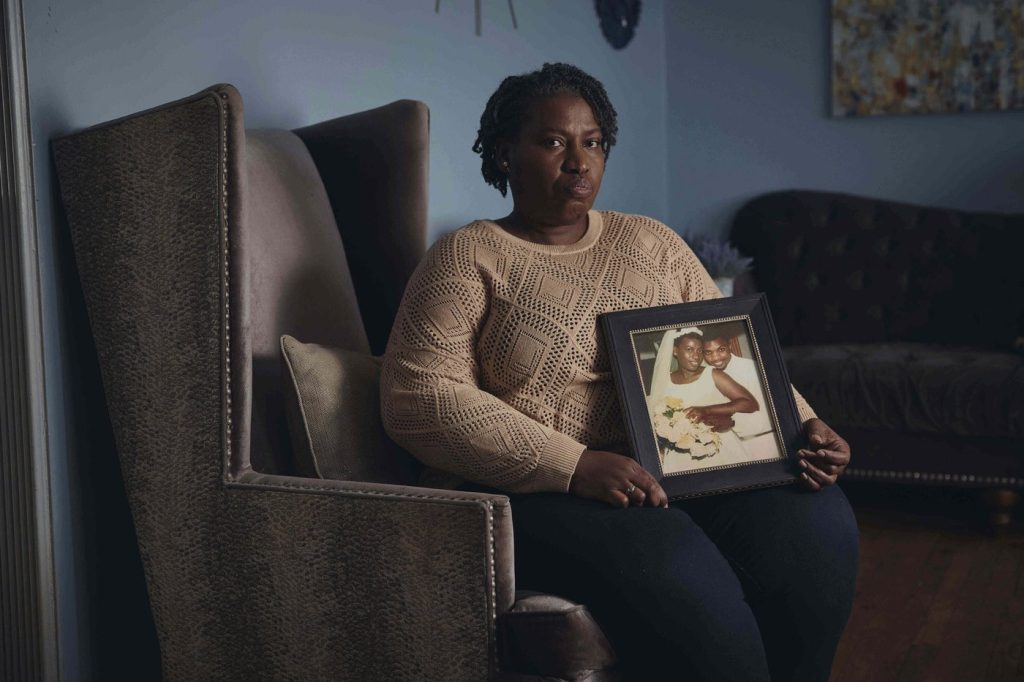The Public Safety Officers’ Benefits (PSOB) program, established by Congress in 1976, aims to provide financial support to the families of police officers and firefighters who die or become disabled in the line of duty. However, the program is currently facing significant criticism due to increasing delays in the claims approval process, which has worsened in recent years as eligibility criteria have expanded.
While intended to support the families of those who risk their lives, the PSOB program's growth—partly due to three significant expansions in eligibility over the past five years—has led to a more complex system that struggles to efficiently address claims. Critics argue that delays in determining claims can leave families in precarious financial situations, further exacerbated by inconsistent rulings. An analysis found that many families are waiting years to receive updates on their claims, with some ultimately being denied benefits.
One such case is that of Sharline Volcy, a widow from New Jersey, who received her benefits over 3.5 years after her husband, Ronald Donat, died during training at the Gwinnett County Police Academy in Georgia. Volcy expressed relief at finally receiving the financial aid, which will help support her two daughters’ college education, but she described her journey as distressing due to the uncertainty and lack of communication regarding her claim. “They told me they didn’t know how long it would take because they don’t have a deadline. That’s the hardest thing to hear,” she remarked.
As of late April, over 120 claims had been pending for initial determinations or rulings on appeals for more than five years, with some cases taking over a decade to resolve. According to a Government Accountability Office report, the PSOB program aims to make determinations within one year; however, a significant backlog exists, with around 900 claims pending longer than one year. In response to these challenges, Republican lawmakers have proposed legislation requiring determinations within 270 days.
Moreover, the denial rate for benefits has risen, with approximately one in three death and disability claims being rejected. Although applicants have the option to appeal, many do not pursue this route, feeling they cannot afford legal representation or simply wanting to move forward with their lives. Justice Department officials, who oversee the PSOB program, stated that the complexity of cases, often involving intricate medical and causation issues, can significantly contribute to extended processing times.
The PSOB program has undergone substantial changes since its inception, beginning as a $50,000 payout for families of officers fatally shot on duty. In 1990, eligibility was expanded to include first responders who were disabled in the line of duty, and subsequent expansions in 1998 added educational benefits. Recent legislative actions have broadened the scope of eligible cases, now encompassing deaths related to COVID-19 and those connected to rescue operations following the September 11 attacks, in addition to specific circumstances of suicide.
Despite frustrations among applicants regarding the program’s inefficiencies, the nonprofit group Concerns of Police Survivors, which represents relatives of officers who have died on duty, has notably refrained from publicly criticizing the PSOB. Critics suggest that the organization may have a conflict of interest due to its financial ties to the program, receiving millions in grant funding for its work—most recently a $6 million grant for support initiatives.
Lisa Afolayan exemplifies the struggles faced by applicants; her husband died after a training exercise more than 16 years ago. Although an autopsy concluded that Nate Afolayan died from heat illness, the PSOB program denied her claim, attributing his death to sickle cell trait, which the program argued did not qualify for benefits. Even after a federal appeals court suggested that the program might not have adequately considered the circumstances surrounding his death, the denial was upheld, and Afolayan continues to navigate the appeal process as her children approach college age.











